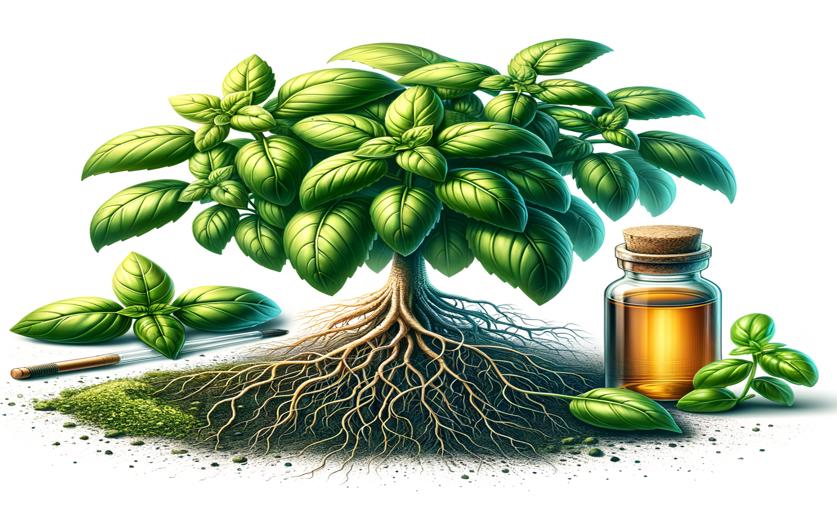
How Horsetail Extract Affects Basil Growth, Oil Production, and Chemistry
Greg Howard
15th May, 2024

Image Source: Natural Science News, 2024
Key Findings
- The study from Shahid Beheshti University explored the impact of silicon-rich horsetail extract on sweet basil's growth and essential oil composition
- Higher concentrations of horsetail extract significantly boosted sweet basil's growth, with the 2% treatment showing the most substantial increases in plant height, leaf number, and biomass
- The 2% horsetail extract treatment also enhanced sweet basil's phytochemical traits, including higher levels of phenols, flavonoids, anthocyanins, and antioxidant activity
References
Main Study
1) Effect of common horsetail extract on growth characteristics, essential oil yield and chemical compositions of basil (Ocimum basilicum L.).
Published 15th May, 2024
Journal: Scientific reports
Issue: Vol 14, Issue 1, May 2024
Related Studies
2) Toxicity, Antioxidant Activity, and Phytochemicals of Basil (Ocimum basilicum L.) Leaves Cultivated in Southern Punjab, Pakistan.
3) Role of silicon in plant stress tolerance: opportunities to achieve a sustainable cropping system.
4) The defensive role of silicon in wheat against stress conditions induced by drought, salinity or cadmium.



 29th February, 2024 | Jim Crocker
29th February, 2024 | Jim Crocker